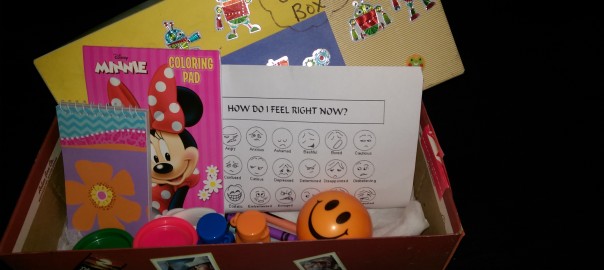In previous posts, I have written about helping children build their feelings vocabulary and express their emotions. Today, I address coping strategies for children and teens. The coping strategies that we find effective as adults may not be as helpful for children or teens.
What is a coping strategy?
A coping strategy is any strategy that helps us tolerate intense emotion, stressful situations or conflict The types of coping strategies we utilize can be healthy or unhealthy (think overeating, excess drinking and more). It is important to help children develop a foundation of utilizing healthy coping strategies when they are young.
Coping strategies are not one size fits all. The type of strategies that may be effective and acceptable vary based on the child’s needs, the family’s expectations, the setting, the type of emotion being experienced, the intensity of the emotion and available resources.
How can we help children develop healthy coping strategies?
- Model use of healthy coping strategies. Children are always watching us! Admit when you have missed an opportunity to use a coping strategy and talk about how you will use a coping strategy in the future.
- Help the child practice coping strategies when they are not experiencing intense emotion or stress. If children are comfortable using the strategy in a calm state they will be more likely to try the strategy when they feel distress. Children are also more likely to be successful in using the coping strategy if they’ve mastered it ahead of time.
- Support children in using healthy coping strategies in the moment as they experience intense emotions, stressful situations or conflict. Chidren may need to be reminded of their coping strategies or may need to be guided through the use of a specific strategy.
- If you observe a child using an unhealthy or unacceptable coping strategy, try to redirect the child by offering a choice of other coping strategies.
- If you have found a set of coping strategies that appears to be very effective for your child, you may want to consider creating coping box like the one pictured in this post. A coping box can be helpful as it allows the child to keep all of their coping materials in one place where they are easy to find. Click here to see if I have scheduled any upcoming Make & Take Coping Box Activities in the Eagan, Minnesota area.
What types of coping strategies are be effective for children and teens?
Here’s a sampling of some coping strategies that may be helpful for children and teens:
- Count to 10 (or any other number)
- Write or draw in a journal
- Take deep breaths (see the note below about deep breathing)
- Ask a loved one for a hug
- Listen to music
- Run, walk or another form of exercise
- Draw, Color or paint
- Hug a teddy bear or other stuffed animal
- Go to a peaceful place
- Mold /squeeze play-dough or clay
- Talk to someone: a parent, a friend, a trusted adult, a counselor/therapist
- Stomp feet
- Write a letter-send it or keep it or destroy it
- Positive Self Talk
- Use of a fidget toy or stress ball
- Take a break
- Muscle Relaxation
- Safe place imagery
- Scream/yell into a pillow
Note: Please email me at sarah@sarahleitschuhcounseling.com if you’d like to receive a handout that specifically addresses helping children master deep breathing.
I am curious about what types of coping strategies you have found to be most effective for the children in your life. Please feel free to share your experiences in the comments below.
If you have tried the strategies outlined in this post, but your child is struggling to implement effective coping strategies you may want to consider counseling. I offer counseling for children and teens in the Eagan, Minnesota area. Contact me at 952-457-2322 or sarah@sarahleitschuhcounseling.com for more information about counseling services.

We keep a list of coping strategies on our fridge, in case someone needs a quick reminder of healthy strategies.
Wow, this is great. We all know a young person who could use this. Thanks for sharing
Maggie, that is a great idea. It is often when we need to use a coping strategy that it becomes difficult to remember what the healthy options are! Posting the list on your fridge is a great reminder. Thanks for sharing.
Dayne, Thank you for commenting. As adults we have such a powerful role in helping children learn about healthy coping strategies.
This is a great post. I’m going to direct a dear friend of mine here. She’s a wonderful mom who recently went through a divorce. The time her kids spend with her ex seems to be causing them (the kids) a great deal of stress. I’m sure she’s love to have these strategies in her back pocket for them.
When my 8 year old daughter starts to feel anxious about some future event or outcome I tell Her that her mind will always try to look for things to worry about. I think we need to teach our kids to somehow understand that they are separate from their thoughts … That thoughts come and go but the true essence (consciousness) of them is always intact. Maybe a little too deep for young ️kids !
Understanding the connections between thoughts, feelings and actions is definitely tricky…for adults and children! It’s great that you are having these conversations with your daughter.
Thanks for sharing the post with your friend, Brooke. Divorce is certainly stressful on children (and adults). Hopefully having some strong coping strategies will help the children navigate this stressful time. The parents could even consider creating coping boxes for the children to take between their homes.